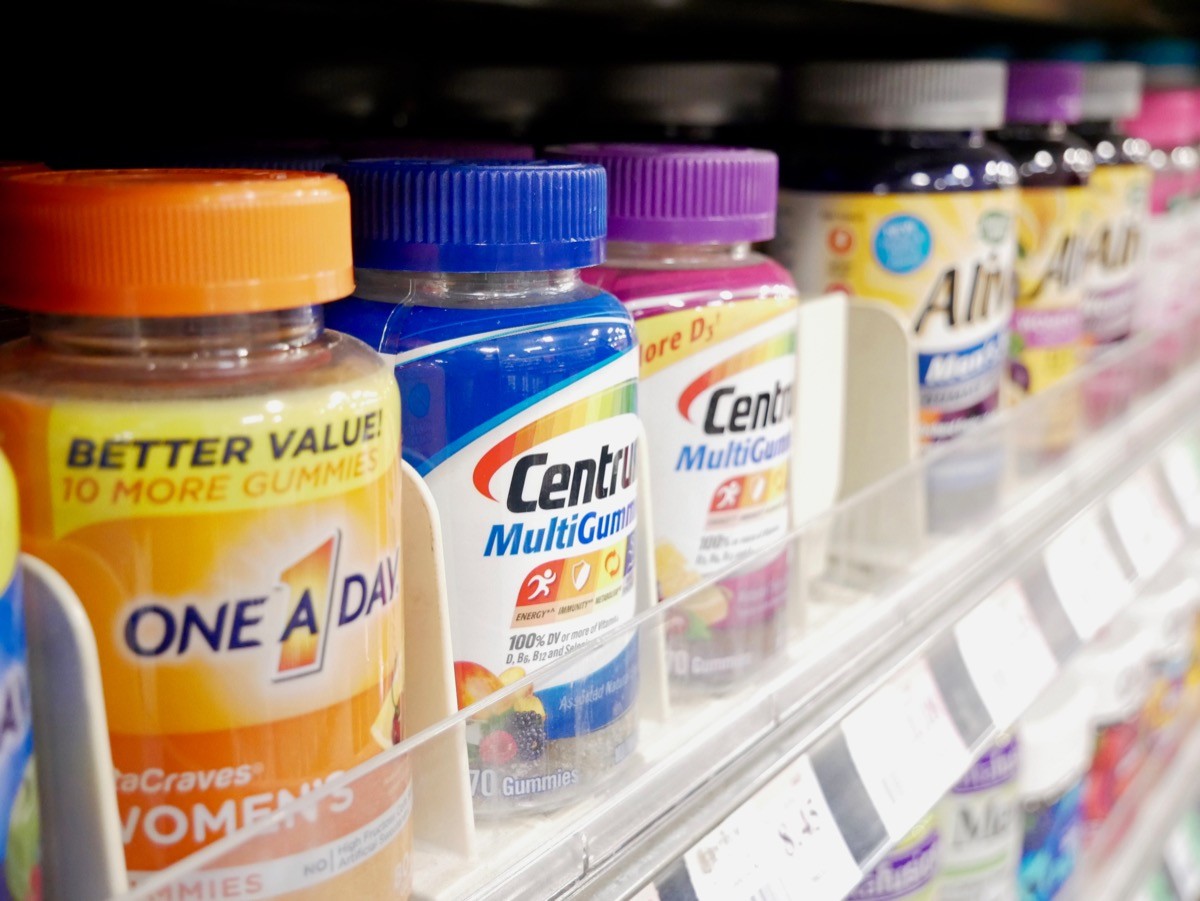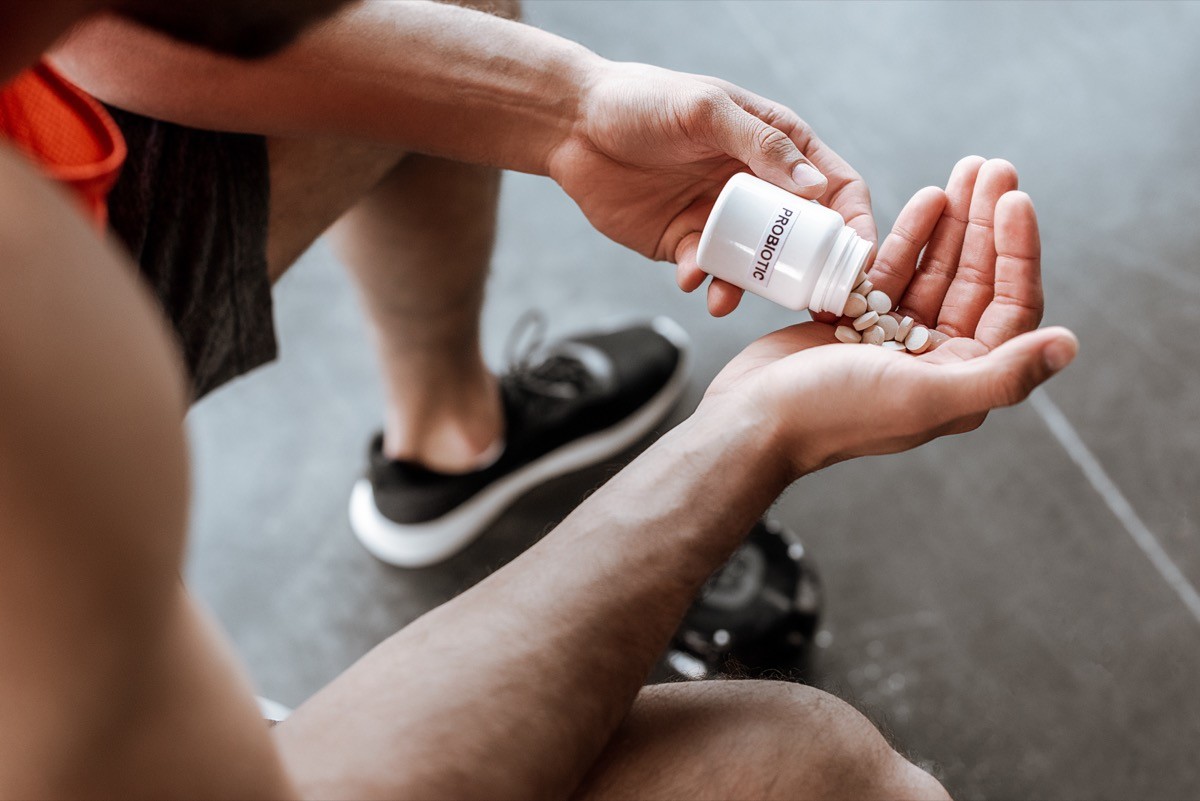Doctors Say These Are the 8 Most Overused Supplements

Supplements are all the rage these days. About 74% of U.S. adults report taking at least one for their health and overall wellness, according to a 2023 survey. The market is growing exponentially, to the tune of an estimated $170.1 billion by the year 2034. However, according to doctors, many of the pills, powders, and gummies you see on TikTok, in the news, or at your local pharmacy are promising more than they can actually deliver.
From biotin for hair growth to daily multivitamins that far exceed your nutrient needs, experts say the average American is overusing certain supplements under the impression that “more is better.” In reality, over-supplementing can tax your liver, throw off your nutrient balance, and even increase the risk of serious health issues in some cases. So, which supplements are most often overused, and why should you rethink your routine? Here’s what doctors say you should be cautious about before your next dose.
RELATED: Never Take Supplements With These 6 Foods
Are there health concerns if you overuse supplements?

In short, yes. “There can be concerns about taking too many supplements or overusing them,” says Amanda Sauceda, RD, founder of The Mindful Gut.
Most supplements offer vitamins and minerals that you can get from having a variety of whole foods in your diet, including fruits and vegetables. “If you need to rely on supplements to be your main source of nutrients, then we’ll want to dig deeper into why that is so you can get to the root cause,” says Sauceda.
“There is also such a thing as an upper limit for some nutrients—you can risk toxicity levels when you reach that amount.”
Doctors say this can happen with several different supplements, which people often take unnecessarily.
RELATED: 12 Best Supplements to Feel Energetic & Fight Fatigue
The Most Overused Supplements: 1 | Multivitamins

Many people take a daily multivitamin to cover all their health bases. However, Stacia Woodcock, PharmD, pharmacy editor at GoodRx, notes that these supplements are probably the most overused of the bunch.
“Most people get enough of the vitamins and minerals they need from their daily diet. And most nutrients are absorbed better by the body when they’re in food as opposed to a pill,” Woodcock says.
“Multivitamins are best for those who are picky eaters, such as young children, or those who follow a restricted diet. Still, it’s best to check with your primary care provider before you start taking any supplement.”
3
Vitamin D

You might think you need a vitamin D supplement in the winter, but Woodcock says that, in general, this sunny supplement is “not always necessary.”
“There’s been a lot of hype about vitamin D deficiency lately,” she says. “But too much vitamin D can be harmful to your health. So you shouldn’t take extra vitamin D unless your primary care provider has confirmed your levels are low.”
RELATED: 12 Supplements You Should Never Take Together, Medical Experts Say
4
Vitamin A

People can be deficient in vitamin A—causing anemia and dry eyes—but it’s not common in the U.S., according to the Mayo Clinic. That’s why this supplement is one of the most overused.
“Among the most frequently overused vitamin supplements are the antioxidants, particularly Vitamin A,” explains Kien Vuu, MD, radiologist, founder of VuuMD Performance and Longevity, and author of Thrive State. “When too much Vitamin A is consumed, it can become toxic.”
This can cause an acute or prolonged case of vitamin A toxicity known as hypervitaminosis A. Symptoms include dizziness, nausea, vomiting, or headaches, or in more serious cases, liver damage, central nervous system dysfunction, and weakened bones.
“Most of us will not come anywhere near the upper limit of Vitamin A for safe intake simply by eating foods that contain it,” Vuu says. “However, if you’re thinking of taking a Vitamin A supplement, it’s better to talk to your doctor first.”
5
Calcium

For years, we’ve been told about the importance of calcium for strong bones (who can forget the “Got Milk?” campaigns of the ’90s?). However, this is another supplement that might not be needed.
Excessive calcium intake “can increase calcification in arteries and promote kidney stone formation,” Vuu says. “If you take calcium supplements, be sure to counterbalance with magnesium, vitamin K2, and other nutrients; those vitamins and nutrients help steer calcium to your bones and keep it away from your arteries and kidneys.”
RELATED: 8 Supplements That Can Damage Your Kidneys, Doctors Say
6
Vitamin C

When cold and flu season rolls around, many of us reach for vitamin C supplements to bolster our immune systems. But Vuu says certain options are overused.
“While I think vitamin C is a very important supplement, poor-quality vitamin C supplements are [overused],” he says. “Many of these supplements give no benefit because they are excreted too quickly from the body. Even if these supplements did offer some benefit, they would not offer nearly enough of what is required to maintain a healthy level of vitamin C.”
What’s more, some vitamin C supplements can cause gastrointestinal issues, which Vuu describes as “unpleasant” and “not good.”
7
Iron

Iron deficiency is exceedingly common—and for those who genuinely need it, supplementation is a great option. That said, if you don’t need additional iron and overdo it with supplementation, you can risk some serious consequences.
“Excessive iron is highly damaging to many essential organs and can exacerbate the dangerous conditions affecting certain diseases,” Vuu says. “You shouldn’t use iron supplements without the clear direction of a qualified health professional. If more than is needed is taken regularly, the supplement becomes a drug that can seriously undermine your health.”
RELATED: 7 Best Supplements for Gut Health, According to Doctors
8
Digestive enzymes

Sauceda highlights digestive enzymes as another overused supplement. These are advertised to “help you break down your food.”
“I am always dubious when it comes to digestive enzymes because your body should be making these already,” she says. “If someone feels better taking digestive enzymes, then we need to dig deeper into why that is.”
9
Probiotics

Probiotics have also become a major trend in the last few years, and while they “have their place,” Sauceda says they need to be “used with caution.”
“To get the full benefit, you need to make sure you’re matching the health condition you’re looking to help with the bacteria strain that has been researched to improve the concern,” she explains. “If a probiotic has a proprietary blend, then not only will you not know exactly what strains are in there, you won’t know if the amount of the bacteria is enough to be helpful.”
RELATED: 7 Hidden Dangers of Taking Fish Oil Supplements, Doctors Say
Talk to your doctor to learn which supplements you need.

Even with this knowledge about overused supplements, you should absolutely talk to your doctor before starting or stopping a new regimen. They can give you a blood test, which will show any vitamins or minerals you’re deficient in.
“They can let you know if any levels are low enough to indicate a supplement is a good idea,” Woodcock notes. “They can also identify other health conditions, such as high triglyceride levels, that a supplement may help improve.”
When you get a recommendation from your doctor, it’s worth asking them a few follow-up questions to ensure you choose the best supplements that are safe and effective.
“Keep in mind that supplements aren’t regulated the same way as [over-the-counter] or prescription medications, so there’s always a risk of contamination or inaccurate labeling with any supplement you take,” Woodscok warns. “If your healthcare team recommends a supplement, be sure to ask them for recommended brands and avoid purchasing them through third-party online retailers.”
- Source: Mayo Clinic: Vitamin A